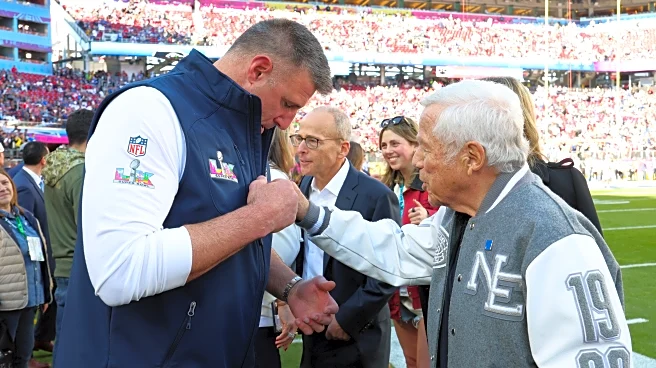What's Happening?
A recent study explored the awareness and understanding of Clinical Dental Technicians (CDTs) among Foundation Dentists (FDs) in the Midlands. The study involved 110 FDs, with 66 participating in a questionnaire before a training session. Results showed
that 74% had heard of CDTs, but only 6% had referred to them. Many FDs were unclear about the differences between CDTs and dental technicians, with misconceptions about their scope of practice. After a teaching session, a follow-up questionnaire revealed improved understanding, with 100% of respondents indicating they would refer to a CDT and recognizing the distinct roles of CDTs. However, gaps in knowledge remained, particularly regarding the ability of CDTs to take radiographs and perform certain procedures without a dentist's prescription.
Why It's Important?
The study highlights the need for better education and training regarding CDTs among dental professionals. Understanding the role and capabilities of CDTs is crucial for effective patient referrals and collaboration within dental practices. Improved awareness can enhance patient care by ensuring that FDs utilize the full scope of services offered by CDTs. This can lead to more efficient dental care delivery and potentially reduce the workload on dentists by appropriately delegating tasks to qualified CDTs. The findings suggest that targeted educational interventions can significantly improve knowledge and confidence in referring to CDTs, which is essential for optimizing dental practice operations.
What's Next?
The study suggests that further educational initiatives are needed to address remaining gaps in knowledge about CDTs. Dental schools and training programs may consider integrating more comprehensive modules on the role and scope of CDTs into their curricula. Additionally, ongoing professional development sessions could be implemented to ensure that practicing dentists and dental technicians are up-to-date with the latest practices and regulations concerning CDTs. Stakeholders in the dental industry might also explore collaborative efforts to standardize training and certification processes for CDTs to ensure consistent understanding across the profession.
Beyond the Headlines
The study raises broader questions about the integration of specialized roles within healthcare professions. As the scope of practice for various healthcare providers evolves, there is a need for continuous education to keep pace with changes. This situation reflects a larger trend in healthcare where interdisciplinary collaboration is becoming increasingly important. Ensuring that all healthcare professionals are aware of each other's roles can lead to more holistic and patient-centered care. The findings also underscore the importance of clear communication and understanding within healthcare teams to maximize the benefits of specialized skills.
















